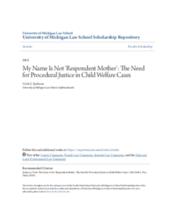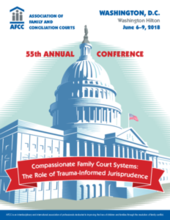This page contains documents and other resources related to children's care in the Americas. Browse resources by region, country, or category.
Displaying 1841 - 1850 of 3191
This study explores the experiences of Jamaican transnational mothers in New York City and documents their stories in light of current research which investigates how transnational motherhood transgresses gender stereotypes and pushes the boundaries of gender roles and expectations.
This webinar is part of the National Family Support Network's Webinar Wednesday series and will provide an overview of the US nationally-adopted Standards of Quality for Family Strengthening & Support.
This article from the Tyee is part 10 of a series which explains how the the Splatsin First Nations indigenous community "fought to gain control, and offer a new model of care for kids and families."
The objectives of this study were to examine the prevalence and type of trauma exposure, and investigate the relationship between prior trauma and serious illness among foster children at end of life.
The Council of Bishops of The United Methodist Church has issued a statement condemning the US policy of separating children from their parents as they enter the United States from Mexico.
This paper describes the experiences of parents with child welfare cases in family court. The paper argues the need to build a court process to support parents and keep families together.
The United Nations human rights office has called on the United States to "immediately halt" its current policy of separating parents and children who enter into the country without authorization.
This conference will focus on addressing the role of trauma in family courts and the judicial system and advancing the system’s response to the needs of families. It will be held in Washington, DC on 6-9 June 2018.
This day-long conference, Cross-Border Family Mediation: Dispute Resolution for International Families In Your Community, will be held on June 5, 2018 in Washington, D.C.
The purpose of this systematic review is to compare the associations of kinship care and non-kinship care with children's mental health and to examine the factors associated with children's mental health in kinship care and non-kinship foster care.



